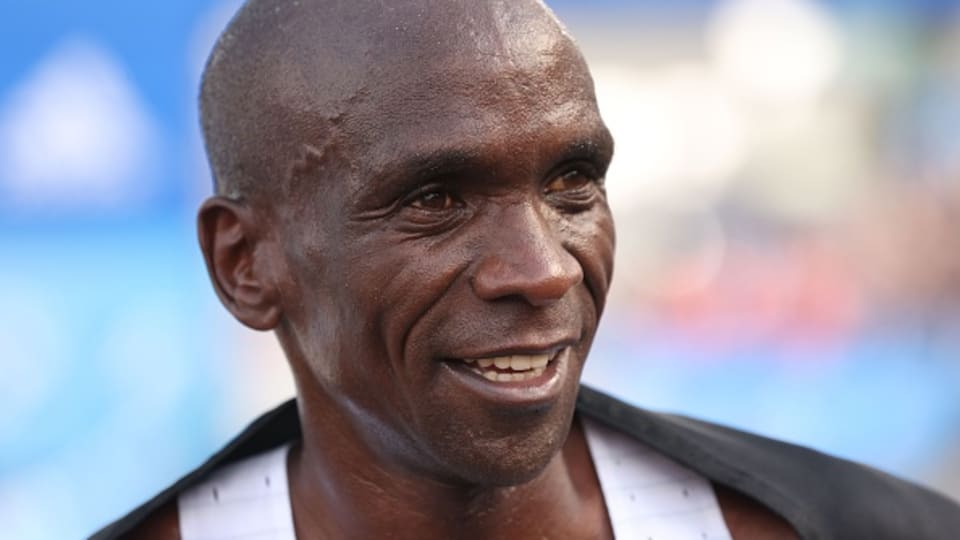A champion's diet: What marathon legend Eliud Kipchoge eats
The double Olympic gold medallist and world record holder needs to sustain himself for hours during training and on race days, but prefers to keep his food very simple with most of it sourced locally around his base in Kaptagat.

A typical day for Eliud Kipchoge involves a lot of running.
He clocks up close to 220km weekly and, because of the long distances he does, a lot of his diet is protein and carbohydrates.
There is no binge eating for the double Olympic marathon gold medallist - he only eats at specific times during the day.
His favourite food is the Kenyan staple food ugali which is a solid maize meal porridge.
Like his training, the marathoner’s diet is incredibly simple, consisting of beans and locally sourced fruits and vegetables.
As a treat, Kipchoge likes plenty of sugar in his tea adding three teaspoons to his substantial breakfast mug.
What does Eliud Kipchoge's diet include?
After his long runs or intense speed sessions on track, his breakfast consists of white tea and bread, a common Kenyan breakfast.
The bread he and his training mates at their training base in Kaptagat eat is homemade.
“But during the hard days, like three days a week, I'm taking tea, some fruits, also a banana and eggs to replace the energy lost and above all, to repair the torn tissues,” he told the BBC.
On race days, his start is even lighter - cereals and milk - or just oats as he had before his sub two-hour run in Vienna in 2019.
For lunch and dinner, he usually has ugali with lean beef and some managu - an indigenous spinach-like vegetable. The vegetable is a common nightshade rich in vitamins and fibre. He alternates the managu with cabbage or kale (sukuma).
The marathon hero also likes to have his ugali served with beans and potatoes, loading up on his carbs.
On days, he is not eating his favourite ugali, he has rice and red beans, another high source of protein. The other popular carbohydrate on the four-time Olympic medallist’s menu is a local favourite, chapati.
Chapati is an unleavened flatbread originating from India and a staple in Eastern Africa, which he can also have with beans.
But when he is travelling and cannot lay his hands on his ugali, his favourite go to meal is pasta.
The meal fit for a champion is often concluded with a fruit.
Importance of 'carbo-loading' for marathoners
His nutritionist Armand Bettonviel explained the importance of carbo-loading and why marathoner runners need to avoid whole grain products.
“So why carbo-load? Well, when your body reaches a very intense state, as it will in a marathon, it will test the carbohydrate stores,” he said in an interview with his NN Running team.
“Simply put, the more carbs in the body and greater storage levels, the greater the likelihood you will perform at your best for longer. The extra carbs I would recommend a marathon runner take on board are rice, pasta, potatoes, oatmeal, banana and pancakes. It should be noted, however, that wholegrain products are not suitable for everyone because it can cause gastrointestinal discomfort.”
Another favourite on Kipchoge’s table is just plain milk or fermented milk called mursik. It's yellowish in colour with chunks and tastes like yoghurt.
The milk and tea is just a small percentage of his liquid intake with the Kenyan star ensuring he drinks up to three litres of water daily.
